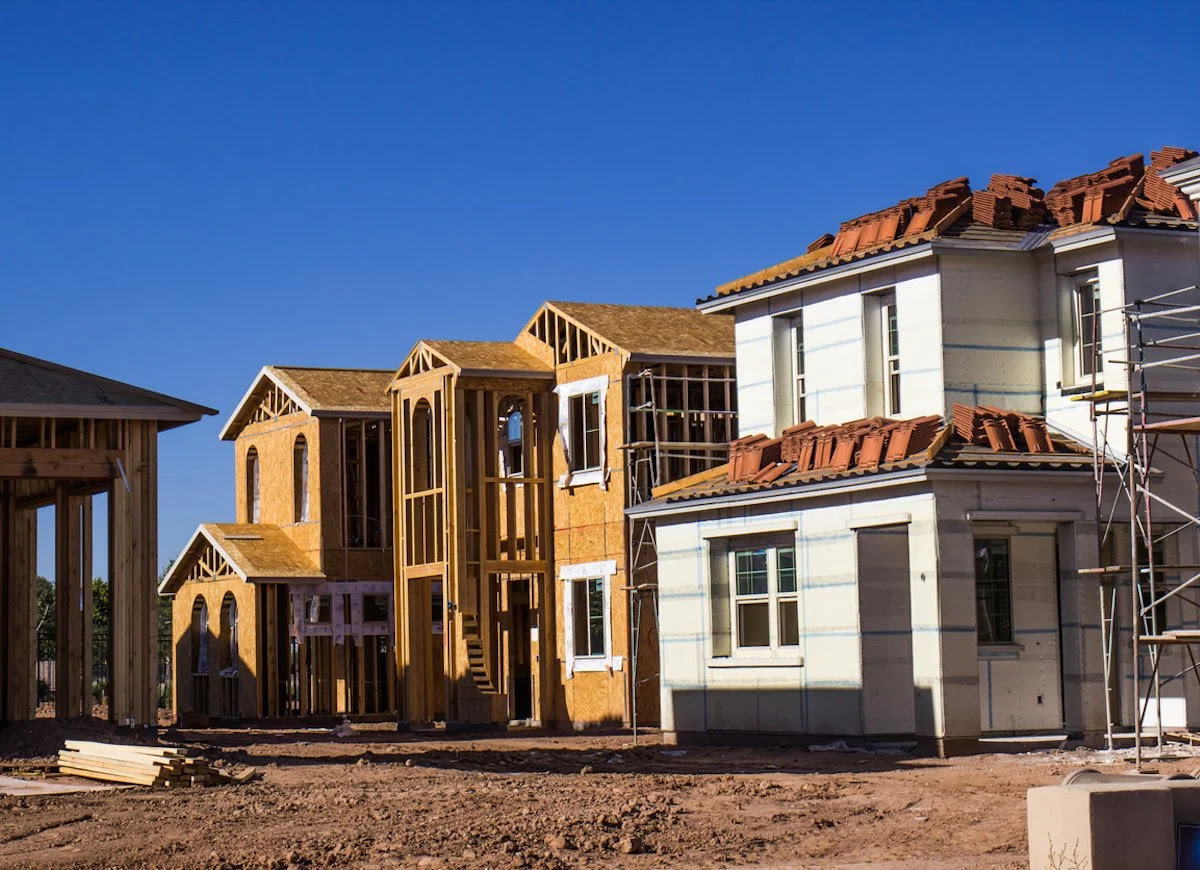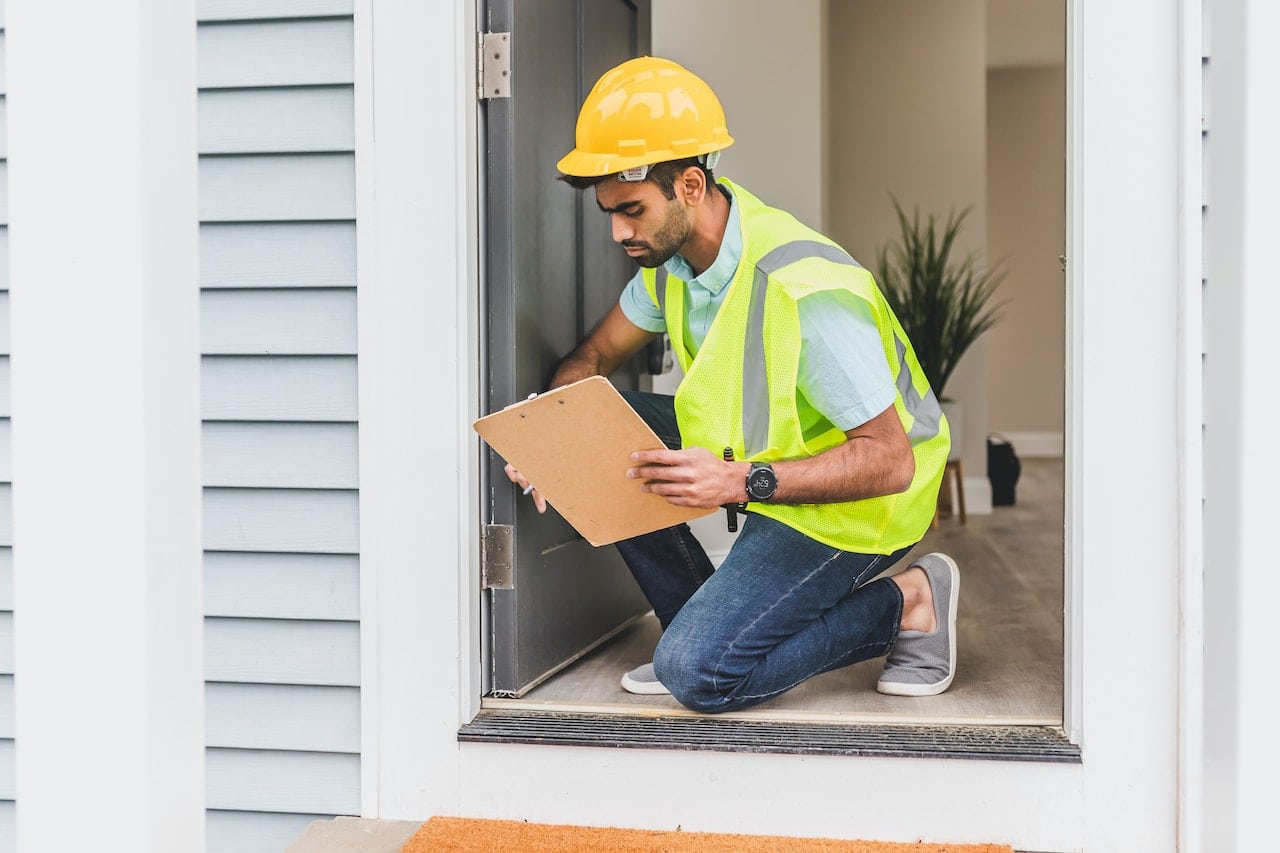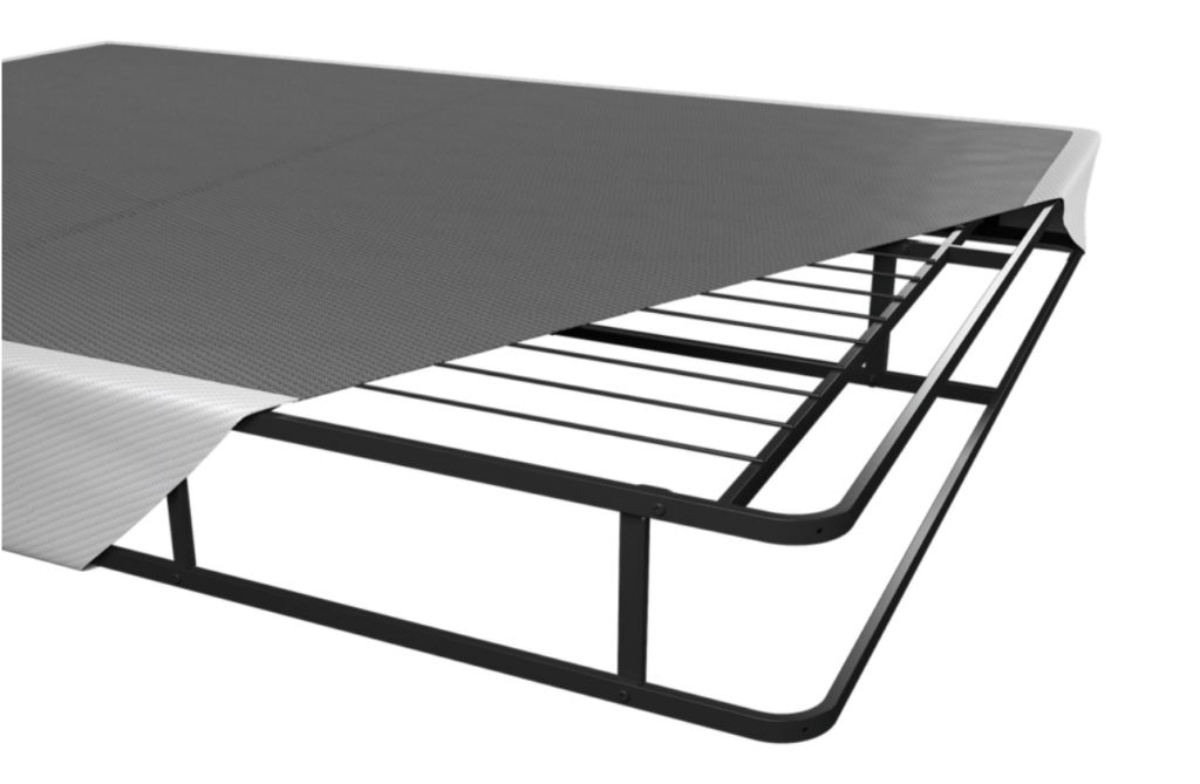Home>diy>Building & Construction>How Do You Pay For A New Home Construction


Building & Construction
How Do You Pay For A New Home Construction
Modified: December 8, 2023
Looking to pay for your new home construction project? Discover the best ways to finance your building construction with expert tips and advice.
(Many of the links in this article redirect to a specific reviewed product. Your purchase of these products through affiliate links helps to generate commission for Storables.com, at no extra cost. Learn more)
Introduction
Building a new home is an exciting endeavor, but it comes with a significant financial commitment. One of the first and most important steps in the process is figuring out how to pay for your new home construction. With several financing options available, it’s essential to understand the different routes you can take to make your dream home a reality.
In this article, we will explore various financing options and programs that can help you fund your new home construction. Whether you prefer traditional bank loans, specialized construction loans, home builder financing, or utilizing personal savings, there are solutions for every budget and circumstance.
Let’s dive into the different financing options and programs available, so you can make an informed decision on how to pay for your new home construction.
Key Takeaways:
- Financing a new home construction involves evaluating various options such as bank loans, construction loans, home builder financing, personal savings, and government programs. Consider factors like financial stability, credit history, and long-term goals to make an informed decision.
- When financing new home construction, carefully assess factors such as down payment requirements, interest rates, repayment terms, and financial flexibility. Seek professional guidance and explore government programs to ensure a successful and financially responsible build.
Financing Options for New Home Construction
When it comes to financing your new home construction, there are several avenues you can explore. Each option has its own set of requirements, benefits, and drawbacks. Let’s take a closer look at some of the common financing options:
- Banks and Mortgage Loans: One of the most common ways to finance a new home construction is through traditional banks and mortgage loans. If you already own the land or are purchasing a lot separately, you can secure a loan to cover the construction costs. However, keep in mind that banks typically require a down payment and will conduct a thorough evaluation of your credit history and financial standing.
- Construction Loans: Construction loans are specifically designed for home construction projects. These loans can be obtained through banks or credit unions and provide funds to cover the construction costs. The funds are dispersed in stages as the construction progresses, and repayment terms are typically shorter than traditional mortgage loans. It’s important to note that construction loans often require a larger down payment and may have higher interest rates.
- Home Builder Financing: Some home builders offer financing options to their customers. This option allows you to work directly with the builder to secure financing for your new home construction. Builders may have relationships with lenders that specialize in construction loans or offer in-house financing options. Make sure to thoroughly understand the terms and conditions before opting for builder financing.
- Personal Savings and Cash: If you have been diligently saving for your dream home, using your personal savings can be an excellent financing option. By utilizing your cash reserves, you can avoid interest payments and potentially have more flexibility during the construction process. However, it’s essential to ensure that you maintain sufficient savings for any unexpected expenses or emergencies that may arise during construction.
- Home Equity Loans: If you currently own a home with equity, you can consider taking out a home equity loan to finance your new home construction. Home equity loans allow you to borrow against the value of your existing home and use the funds for construction purposes. Keep in mind that this option increases your debt and your home will serve as collateral.
These are just a few financing options to consider when building a new home. It’s crucial to evaluate each option carefully, considering your financial situation, repayment ability, and long-term goals. Additionally, consulting with a financial advisor or mortgage specialist can provide valuable guidance in selecting the most suitable financing solution for your new home construction.
Banks and Mortgage Loans
When it comes to financing a new home construction project, one of the most common options is to secure a traditional bank loan or mortgage loan. Banks offer a variety of loan products specifically tailored to meet the needs of home construction projects.
With a bank or mortgage loan, you have the flexibility to purchase or own the land separately before obtaining the loan. This is an important consideration if you already have a specific lot in mind for your new home. Once you secure the loan, the funds can be utilized to cover the construction costs.
One of the advantages of opting for a bank loan is the potential for favorable interest rates, especially if you have a strong credit history and a good relationship with the bank. Additionally, the repayment terms are typically more extended than those of construction loans, allowing for a more manageable monthly payment.
However, it’s important to note that banks often require a down payment for the loan, which can range from 10% to 20% of the total cost of the project. Additionally, the bank will conduct a thorough evaluation of your credit history, income, and financial standing to determine your eligibility for the loan.
It’s crucial to shop around and compare loan offerings from different banks to find the best terms and rates that suit your needs. Don’t hesitate to ask questions and seek clarification on any terms and conditions before committing to a loan.
When considering a bank loan for your new home construction, keep in mind the potential time constraints. Banks typically take longer to process loan applications and disburse funds compared to specialized construction loans. This can impact the timing of your construction project, so it’s important to plan accordingly and allow for any potential delays in funding.
Overall, securing a bank loan or mortgage loan for your new home construction is a popular financing option. Take the time to research and compare different banks and loan offerings to find the best fit for your financial situation and construction needs.
Construction Loans
When embarking on a new home construction project, one financing option to consider is a construction loan. Construction loans are specifically designed to provide funding for the construction of a new home.
Unlike traditional mortgage loans, construction loans are disbursed in stages as the construction progresses. This ensures that the funds are used appropriately and in line with the construction timeline. Typically, the funds are released in several draws based on pre-determined milestones, such as completing the foundation, framing, or finishing the interior.
One of the benefits of a construction loan is that it allows you to finance the construction costs while only paying for the interest during the construction phase. This is known as the “interest-only period,” which helps ease the financial burden during the construction process.
Construction loans are typically short-term loans, with terms ranging from six months to a few years. Once the construction is complete, the loan is usually converted into a traditional mortgage loan, such as a fixed-rate mortgage or an adjustable-rate mortgage (ARM).
It’s important to note that construction loans often require a larger down payment compared to traditional mortgage loans. Lenders may require a down payment of 20% or more of the total project cost. Additionally, construction loans may have higher interest rates compared to standard mortgage loans.
Applying for a construction loan involves a thorough evaluation of your credit history, income, and feasibility of the construction project. Lenders will review the construction plans, cost estimates, and contractor qualifications to ensure the project aligns with their requirements.
During the construction phase, the lender will conduct periodic inspections to verify the progress and ensure that the construction is proceeding as planned. The funds for each stage will be released once the necessary inspections and approvals are obtained.
If you decide to pursue a construction loan, it’s crucial to work with reputable builders and contractors who have experience with construction loans. This ensures that the project runs smoothly and stays on schedule, minimizing any potential issues that may arise during the construction process.
Before opting for a construction loan, it’s recommended to consult with multiple lenders and compare their loan offerings to find the best terms and rates. Understand the repayment terms, including the transition from the construction phase to the permanent mortgage, and clarify any potential fees and penalties associated with the loan.
Overall, construction loans are a viable financing option for new home construction projects, providing the necessary funds to complete the build. It’s important to carefully evaluate the terms, consider your financial capabilities, and choose a reputable lender to ensure a successful construction experience.
Home Builder Financing
If you’re planning to build a new home, another financing option to consider is home builder financing. This type of financing is offered directly by home builders and provides a streamlined approach to securing funds for your construction project.
Home builder financing is designed to simplify the financing process by offering in-house loan options or partnering with preferred lenders who specialize in construction loans. This allows you to work directly with the builder to secure financing for your new home construction.
One of the advantages of home builder financing is the convenience it offers. Builders who provide financing options often have a deep understanding of the construction process and can offer guidance and support throughout the project. They may also have pre-existing relationships with lenders, which can expedite the loan approval process.
Home builder financing may also have specific benefits that traditional bank loans or construction loans do not offer. Some builders may offer promotional interest rates, loan terms tailored to your specific project, or assistance with closing costs. These incentives can be appealing and help make the financing process more affordable.
It’s important to carefully review the terms and conditions of home builder financing before committing to it. Some builders may require a down payment or expect you to choose from a limited list of approved lenders. Be sure to ask about the interest rates, repayment terms, and any additional fees that may be associated with the financing option.
Before opting for home builder financing, it’s essential to conduct thorough research on the reputation and track record of the builder. Look for builders with a solid reputation and a history of successfully completing construction projects. Additionally, review customer feedback and testimonials to gauge the builder’s reliability and customer satisfaction levels.
Working with a reputable builder who offers financing options can provide peace of mind throughout the construction process. However, it’s still essential to carefully review the loan terms, compare them with other financing options, and consult with a financial advisor if needed.
Ultimately, home builder financing can be a convenient and accessible way to finance your new home construction project. If you choose this option, ensure that you understand the terms, compare them against other financing options, and choose a builder with a solid reputation and a track record of success.
Personal Savings and Cash
If you’ve been diligently saving money, utilizing your personal savings and cash to finance your new home construction can be a smart and advantageous option. Paying with cash offers several benefits that other financing options may not provide.
Using your personal savings eliminates the need to take out a loan, saving you from paying interest and potentially reducing your overall cost. Without monthly loan payments, you may have more financial flexibility throughout the construction process and beyond.
Another advantage of using personal savings is the ability to have a greater degree of control over your construction project. You can allocate funds as needed, prioritize certain aspects of the build, and potentially make adjustments without the constraints or requirements of a lender.
However, before committing your entire savings or cash reserve to your new home construction, consider the potential risks and drawbacks. Building a new home is a complex and unpredictable process, and unexpected expenses can arise. It’s crucial to have a contingency fund set aside in case of any unforeseen circumstances or cost overruns during construction.
Additionally, using personal savings means that you won’t have extra funds readily available for other expenses or emergencies that may arise during or after the construction process. It’s essential to carefully consider your future financial needs and ensure that sufficient funds are still available for other purposes.
When using personal savings, it’s also vital to maintain a secure and accessible backup fund. This ensures that you have a safety net in case of any financial emergencies or changes in circumstances during or after construction.
Before utilizing your personal savings, it’s advisable to consult with a financial advisor. They can help you assess the potential impact on your overall financial situation, provide guidance on the appropriate amount to allocate for the construction project, and help you determine if it’s the right decision for your specific circumstances.
While using personal savings and cash to finance your new home construction can be a prudent choice, it’s important to carefully evaluate your financial situation, assess the risks and benefits, and plan accordingly to ensure a successful and financially responsible build.
Consider getting pre-approved for a construction loan before starting the home building process. This will give you a clear understanding of your budget and help streamline the financing process.
Home Equity Loans
If you’re a homeowner with equity built up in your current property, another financing option to consider for your new home construction is a home equity loan. A home equity loan allows you to tap into the value of your existing home and use the funds for your construction project.
One of the primary advantages of a home equity loan is the potential for lower interest rates compared to other types of loans. Since the loan is secured by your home equity, lenders view it as less risky. As a result, you may be able to secure a more favorable interest rate.
Home equity loans typically allow you to borrow a percentage of your home’s appraised value, minus any outstanding mortgage balance. This means that the amount you can borrow is based on the difference between your home’s market value and the amount you still owe on your mortgage.
It’s important to note that home equity loans increase your debt and use your home as collateral. If you’re unable to make the payments, there is a risk of foreclosure. Therefore, it’s crucial to carefully consider your ability to repay the loan and ensure that taking on additional debt is a sustainable financial decision.
When using a home equity loan for new home construction, you may have different options for withdrawing the funds. Some lenders may provide a lump sum at the beginning of the loan term, while others may offer a line of credit that you can access as needed during the construction process.
Prior to pursuing a home equity loan, it’s important to consult with a lender to determine the loan-to-value ratio they require. This ratio represents the maximum percentage of your home’s value that a lender is willing to lend. Be prepared to provide documentation such as income verification, credit history, and construction plans to support your loan application.
As with any significant financial decision, it’s prudent to compare loan offers from different lenders, review the terms and conditions, and understand any fees or closing costs associated with the home equity loan. Additionally, consult a financial advisor to determine the impact of a home equity loan on your overall financial goals and long-term plans.
Using a home equity loan to finance your new home construction can be a viable option for homeowners with significant equity in their current property. However, it’s essential to carefully assess the risks, consider your repayment ability, and ensure that the loan aligns with your financial objectives.
Government Programs for New Home Construction
If you’re looking for additional financing options for your new home construction, you may want to explore government programs specifically designed to assist homeowners in the construction process. These programs offer financial assistance, incentives, and resources to make building a new home more affordable and accessible.
One prominent government program is the Federal Housing Administration (FHA) construction loan. FHA-insured loans provide an alternative financing option for individuals who may not qualify for conventional loans. These loans have lower down payment requirements and more flexible credit guidelines, making them a popular choice for many first-time homebuilders.
Another government program to consider is the U.S. Department of Agriculture (USDA) Rural Development program. Designed for individuals building homes in rural areas, the USDA offers construction loans with low interest rates and relaxed eligibility criteria.
In addition to these federal programs, state and local governments may also provide assistance for new home construction. This can range from grants and low-interest loans to tax incentives and fee waivers. Research the resources available in your specific area to determine if there are any government programs that can help finance your construction project.
Furthermore, energy-efficient and sustainable home construction is encouraged through government programs such as the U.S. Department of Energy’s Energy Efficient Mortgages (EEM) and various state-specific energy conservation programs. These programs offer financing and incentives for incorporating energy-efficient features into your new home, such as solar panels, insulation, and energy-efficient appliances.
When considering government programs for new home construction, it’s crucial to thoroughly understand the eligibility criteria, requirements, and application processes. Research the specific program, consult with designated agencies or lenders, and gather all the necessary documentation to apply.
Keep in mind that government programs may have certain limitations, such as income restrictions or location requirements. It’s important to weigh the benefits and limitations of these programs against other financing options and determine which option best suits your needs and circumstances.
Lastly, it’s advisable to consult with a financial advisor or mortgage specialist who can provide guidance on government programs available in your area and assist you in navigating the application process.
Government programs can be a valuable resource for homeowners seeking financial assistance and support for their new home construction. Take the time to research and explore these programs to determine if they align with your goals and can provide the necessary funding for your dream home.
Building on Your Own Land vs. Buying a Lot and Building a Home
When it comes to new home construction, one of the fundamental decisions you’ll need to make is whether to build on your own land or purchase a separate lot and build a home. Both options have their advantages, and it’s important to consider various factors before making a decision.
Building on your own land offers the convenience of already owning the property and potentially saving on land acquisition costs. If you already have a suitable piece of land, you can proceed with the construction process without the additional step of buying a lot.
Moreover, building on your own land means you have complete control over the location and design of your new home. You can choose the best orientation, take advantage of scenic views, and maximize privacy according to your preferences. This level of customization allows you to create a home perfectly tailored to your needs and lifestyle.
However, building on your own land also presents challenges. You may need to ensure that the land meets zoning requirements, obtain necessary permits, and address any potential environmental or geological concerns. Additionally, developing infrastructure, such as utilities, road access, and drainage, may need to be addressed, which can add to the development costs and timeline.
On the other hand, buying a lot and building a home offers its own benefits. This option allows you to explore a wider range of locations and potentially find a lot in an established neighborhood or desirable area. It also may provide access to existing infrastructure, reducing the need for additional development expenses.
Furthermore, purchasing a lot means you can work with a builder who may have experience in that specific area or neighborhood. They may have insights into local regulations, architectural styles, and building trends, which can streamline the construction process and potentially save you time and money.
However, buying a lot comes with the added cost of land acquisition. Depending on the location and desirability, this can significantly impact your budget. It’s essential to carefully evaluate the cost of the lot, property taxes, homeowner association fees, and any other associated expenses when considering this option.
Whether you choose to build on your own land or purchase a lot, it’s crucial to conduct thorough research, consult with professionals, and assess your specific needs and objectives. Consider factors such as budget, location, customization options, timeline, and any additional requirements or constraints specific to your situation.
Ultimately, the decision of building on your own land versus buying a lot and building a home depends on your preferences, financial capabilities, and long-term goals. Choose the option that aligns best with your vision and provides the foundation for your dream home.
Factors to Consider When Financing New Home Construction
When it comes to financing new home construction, it’s important to consider several factors to ensure you make the right decision for your financial situation and construction needs. Here are some key factors to keep in mind:
- Financial Stability: Assess your financial stability and determine how much you can comfortably afford to borrow or invest in the construction of your new home. Consider your income, savings, and existing debts to establish a realistic budget.
- Credit History: Your credit history will play a significant role in securing favorable financing terms and interest rates. Maintain a good credit score by paying bills on time, reducing outstanding debt, and resolving any credit issues.
- Construction Costs: Evaluate the estimated cost of your construction project. Consider factors such as labor, materials, permits, and architectural fees. It’s essential to have a clear understanding of the total cost to determine the amount of financing you’ll need.
- Down Payment: Determine the down payment required by lenders or financing options. The down payment is typically a percentage of the total cost and can range from 10% to 20% or more. Ensure you have the necessary funds set aside for the down payment.
- Interest Rates: Compare interest rates from different lenders or financing options. Even a slight difference in interest rates can have a significant impact on the total cost of your loan over time. Choose the option with the most favorable interest rates and loan terms.
- Repayment Terms: Consider the repayment terms and duration of the loan. Longer loan terms may offer lower monthly payments but result in higher overall interest costs. Determine what repayment schedule aligns best with your financial goals and ability to make consistent payments.
- Financial Flexibility: Evaluate how financing your new home construction will affect your overall financial flexibility. Consider your ability to handle unexpected expenses, maintain a contingency fund, and manage other financial obligations alongside the construction costs.
- Future Plans: Consider your long-term plans and how the financing option will fit into your future goals. If you plan to sell the property or refinance in the future, consider the potential impact on your financial situation and explore options that offer flexibility.
- Professional Guidance: Consult with financial advisors, mortgage specialists, or construction professionals who can provide valuable insights and guidance. They can help you understand your options, assess the risks and benefits, and make an informed decision.
By carefully considering these factors and conducting thorough research, you can select the financing option that best suits your needs and ensures a successful new home construction project.
Conclusion
Financing a new home construction requires careful consideration of various factors to ensure a smooth and successful process. Whether you choose to secure a bank loan, construction loan, home builder financing, use your personal savings, or explore government programs, it’s important to weigh the advantages and disadvantages of each option.
Building a new home is a significant financial commitment, and understanding your financial stability, credit history, and construction costs is vital for making informed decisions. Consider the down payment requirements, interest rates, and repayment terms offered by different lenders or financing options. Don’t forget to assess your financial flexibility and long-term goals to determine the best financing solution for your needs.
Additionally, when deciding between building on your own land or purchasing a lot, think about factors like location, customization options, and additional costs associated with each option. Research government programs that may provide financial assistance or incentives for new home construction, and consult professionals for guidance throughout the process.
In conclusion, financing new home construction is a complex process, and there is no one-size-fits-all solution. Each person’s financial situation and construction goals are unique. By considering the factors discussed in this article and seeking professional advice, you can choose the financing option that aligns with your needs, ensuring that your new home becomes a reality while maintaining financial stability and peace of mind.
Frequently Asked Questions about How Do You Pay For A New Home Construction
Was this page helpful?
At Storables.com, we guarantee accurate and reliable information. Our content, validated by Expert Board Contributors, is crafted following stringent Editorial Policies. We're committed to providing you with well-researched, expert-backed insights for all your informational needs.














0 thoughts on “How Do You Pay For A New Home Construction”